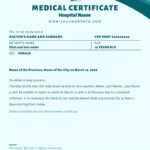Every year, doctors receive a reminder about the hospital’s policy on gifts from patients. The message is clear: patient gratitude is appreciated, but integrity must be maintained when accepting tokens of thanks. For public sector doctors, like myself, the guidelines stipulate that gifts under $50 are permissible. This threshold, while seemingly modest, sparks reflection, especially when considering the socio-economic realities of many patients. Fifty dollars can represent a significant sum for individuals facing homelessness, financial hardship, or battling addiction – it could be the taxi fare to a crucial appointment or the cost of essential medication.
While colleagues in private practice sometimes share stories of lavish gifts – gourmet baskets, exclusive event tickets, and expensive books – my experiences lie in a different realm. The gifts I cherish are not measured in monetary value but in heartfelt sentiment. These tokens, often simple and homemade, speak volumes about the doctor-patient relationship and the profound impact of compassionate care. Over the years, I’ve received gifts that have touched my heart and reinforced the meaningfulness of my profession.
Edible Expressions of Gratitude: Food Gifts
It’s a well-known joke within the medical community that advancements in medicine haven’t quite reached the hospital cafeteria. Many of us rely on packed lunches of cereal, fruit, and leftovers to sustain us through demanding shifts. In this context, food gifts from patients are not just a treat; they are a morale booster, a tangible reminder of connection outside the sterile walls of the hospital.
One patient, until her passing, brought me two loaves of sweet Greek bread every month from a hidden gem of a deli. Insisting I take one home, I’d share the other with my office staff. The aroma of that bread, and the thought behind it, was a monthly highlight. Another patient, an Italian matriarch, shared her heritage through Christmas baking. For a decade, her cookie contributions grew, becoming a beloved office tradition and a sweet memory for my own children. During Diwali, a patient honored my background with Indian sweets, a gesture of cultural understanding and generosity that fed not just me, but many colleagues. And then there’s the patient who consistently arrives with mountains of delectable brownies – her joy in giving and my delight in seeing her well enough to bake are intertwined.
The irony is poignant: often, the patients who gift food have lost their own sense of taste due to their treatments. Their generosity, in the face of personal challenges, underscores the immense goodwill present in the world, if we are open to recognizing it. These edible gifts are more than just food; they are symbols of resilience, connection, and heartfelt thanks.
Symbolic Keepsakes: Gifts Beyond the Material
Beyond food, some of the most impactful gifts have been symbolic keepsakes, imbued with personal meaning and representing the unique bond formed during times of illness.
One unforgettable gift came from a lady who defied the odds, surviving a severe cancer diagnosis. Though a stroke confined her to a wheelchair, she emphasized that her mind and hands remained active. As proof, she crafted a tiny, thumb-sized angel figurine. “Because everyone needs a bit of looking after,” she explained. This small angel, a testament to her spirit and gratitude, became a cherished talisman. It resides among the coins in my car, a constant, though sometimes hidden, reminder of her strength and the power of human connection.
Another profoundly moving gift arrived years after caring for a young refugee. His cancer diagnosis had initiated a complex journey through an unfamiliar healthcare system. Thanks to the dedication of exceptional nurses, he not only survived but thrived, learning English and navigating a new life. Years later, having found stability and resources, he returned to his dangerous homeland. From there, his wife brought me a beautifully embroidered salwar kameez, a traditional garment. Their shy explanation – that the absence of a gift for so long wasn’t due to lack of appreciation but a search for something truly meaningful – resonated deeply. In a world of instant gratification and online shopping, this deliberate act of thoughtful kindness was truly heartwarming.
Perhaps the most deeply considered gift arrived unexpectedly at the funeral of a patient’s father, a war veteran. His daughter pressed a miniature copy of the poem “Desiderata” into my hand. Latin for “things desired,” this poem, a source of wisdom since my medical student days, became a personal anchor. This gift, a silent offering amidst grief, now lives in my car door, its timeless words readily accessible. Lines like:
Go placidly amid the noise and haste, and remember what peace there may be in silence.
Offer solace before demanding hospital meetings.
If you compare yourself with others, you may become vain or bitter; for always there will be greater and lesser persons than yourself.
A universal truth, especially poignant for doctors.
And whatever your labors and aspirations, in the noisy confusion of life keep peace with your soul.
In the demanding world of medicine, equanimity is both essential and elusive. This line, a simple reminder to “keep peace with your soul,” is a call to be a better doctor, and a better human.
The Incalculable Value of Gratitude
Reflecting on these gifts, I consider the fate of those exceeding the hospital’s monetary threshold. Where do the expensive wines, artworks, and jewelry end up? Are they displayed, sampled, or simply relegated to a storage room, awaiting a metaphorical “bonfire of the vanities”? I may never know, nor need to.
The true value of gifts like my tiny angel, my Desiderata, the embroidered salwar kameez, and even the shared brownies and Greek bread, lies far beyond any price tag. They represent human connection, gratitude, and the profound impact of compassionate care. At the year’s end, my heart is full, thanks to the gestures of my patients. While the monetary value of these gifts is negligible, their emotional worth is incalculable. They are, in the truest sense, priceless gifts for a doctor.


